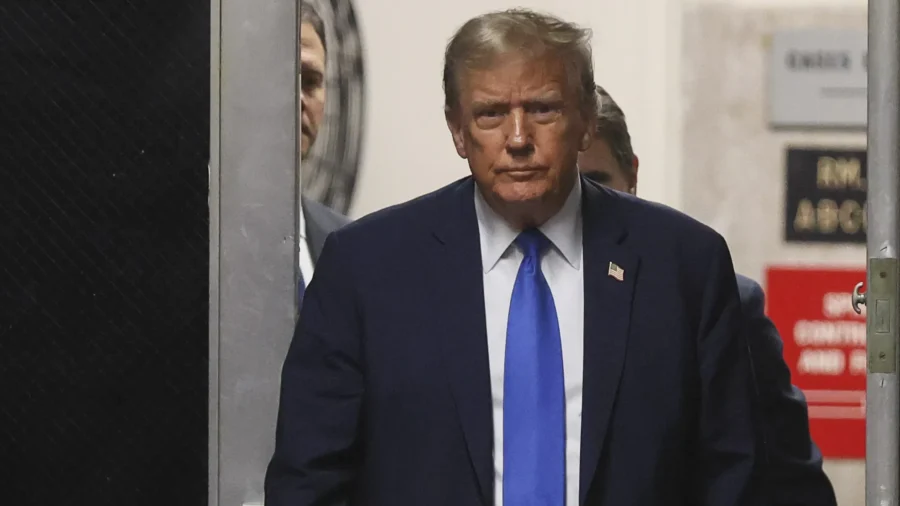A federal judge on Thursday denied former President Donald Trump’s motion to stay proceedings of all civil lawsuits linked to the Jan. 6, 2021, breach of the Capitol, while his 2020 election interference criminal case is ongoing.
The lawsuits were brought by Democratic lawmakers and police officers who seek civil damages for harm they say they suffered during the Jan. 6 Capitol breach, which aimed to stop Congress’ certification of President Joe Biden’s victory.
According to the memorandum opinion and order, President Trump had contended that there is “substantial overlap” between the allegations made by the plaintiffs and those presented by special counsel Jack Smith in his criminal case.
U.S. District Judge Amit Mehta said that President Trump’s assertion is “true in a sense,” given that “both cases center on the former President’s actions in the lead up to and on January 6, 2021.”
“But Defendant overstates the significance of that factual overlap in the present posture of these matters,” the judge stated.
Judge Mehta, who was appointed to the bench by former President Barack Obama, said the public has an interest in the prompt resolution of the civil lawsuits in addition to the criminal case.
The judge said that “appropriate safeguards” can be put in place to allow for the lawsuits to advance without infringing on President Trump’s Fifth Amendment right to avoid self-incrimination.
Judge Mehta also said the former president’s Fifth Amendment privilege is “far less likely” to be affected because the discovery authorized by the D.C. Circuit in this civil case does not require him “to engage with the merits of the plaintiffs’ claims.”
“The sole purpose of discovery, at present, is to develop the record necessary to determine whether Defendant’s alleged conduct can reasonably be understood as the official actions of an officeholder rather than the unofficial actions of an office-seeker,” he stated.
Mr. Mehta found that there is only one piece of evidence in the civil case that could potentially implicate President Trump’s Fifth Amendment privilege, which is his X (formerly known as Twitter) account.
“As to any particular tweet, the primary issue is whether objective, context-specific facts establish that the tweet was made within the outer perimeter of his official responsibilities,” he stated.
“Say, for example, Defendant were to claim that the subject matter of a tweet is evidence that it was an official act. Such a position would not compel him to admit that he wrote the tweet; rather, it would require him simply to identify the content as evidence of presidential conduct.
“Nor would it require the court to make a finding that he in fact wrote or directed any particular tweet,” the judge added.
President Trump has claimed he can’t be sued over the Capitol breach that left dozens of police officers injured, arguing that his words during a rally before the storming of the Capitol addressed “matters of public concern” and fell within the scope of absolute presidential immunity.
In court papers filed last month, President Trump’s lawyers told the judge that “basic fairness to criminal defendants” warrants pausing the civil cases until after the 2020 election criminal case is resolved.
“Basic fairness to criminal defendants and principles of judicial economy counsel that this Court should stay all proceedings concerning President Trump until the criminal case brought by the Special Counsel in the District of Columbia is resolved.
“President Trump should not be forced to waive any of his constitutional rights in this matter, nor prematurely telegraph his criminal defense strategies prior to the completion of the criminal proceedings,” they stated.
The Supreme Court is set to hear arguments next week on President Trump’s claim that he is immune from criminal prosecution in the election interference case brought by the special counsel.
The Associated Press contributed to this report.
From The Epoch Times

